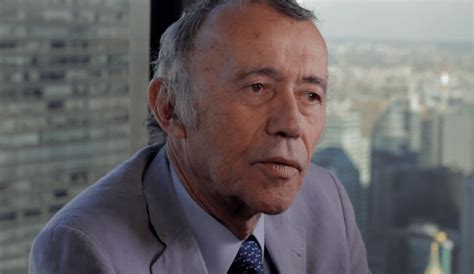A Quote by Jean-Marie Eveillard
To be a value investor, you have to be willing [and able] to suffer pain.
Related Quotes
The investor has the benefit of the stock market's daily and changing appraisal of his holdings, 'for whatever that appraisal may be worth', and, second, that the investor is able to increase or decrease his investment at the market's daily figure - 'if he chooses'. Thus the existence of a quoted market gives the investor certain options which he does not have if his security is unquoted. But it does not impose the current quotation on an investor who prefers to take his idea of value from some other source.
The best test to know whether an entity is real or fictional is the test of suffering. A nation cannot suffer, feel pain or fear, or has no consciousness. Even if it loses a war, the soldier suffers, the civilians suffer, but the nation cannot suffer. Similarly, a corporation cannot suffer, when it loses its value, it doesn't suffer. All these things, they're fictions. If people bear in mind this distinction, it could improve the way we treat one another and the other animals. It's not a good idea to cause suffering to real entities in the service of fictional stories.
We take the traditional value investor's process and just flip it around a little bit. The traditional value investor asks 'Is this cheap?' and then 'Why is it cheap?' We start by identifying a reason something might be mispriced, and then if we find a reason why something is likely mispriced, then we make a determination whether it's cheap.
We have to understand in order to be of help. We all have pain, but we tend to suppress it, because we don't want it to come up to our living room. the most important thing is that we need to be understood. We need someone to be able to listen to us and to understand us, then we will suffer less, but everyone is suffering, and no one wants to listen. We don't know how to express ourselves so that people can understand. because we suffer so much, the way we express our pain hurts other people, and they don't want to listen.






























